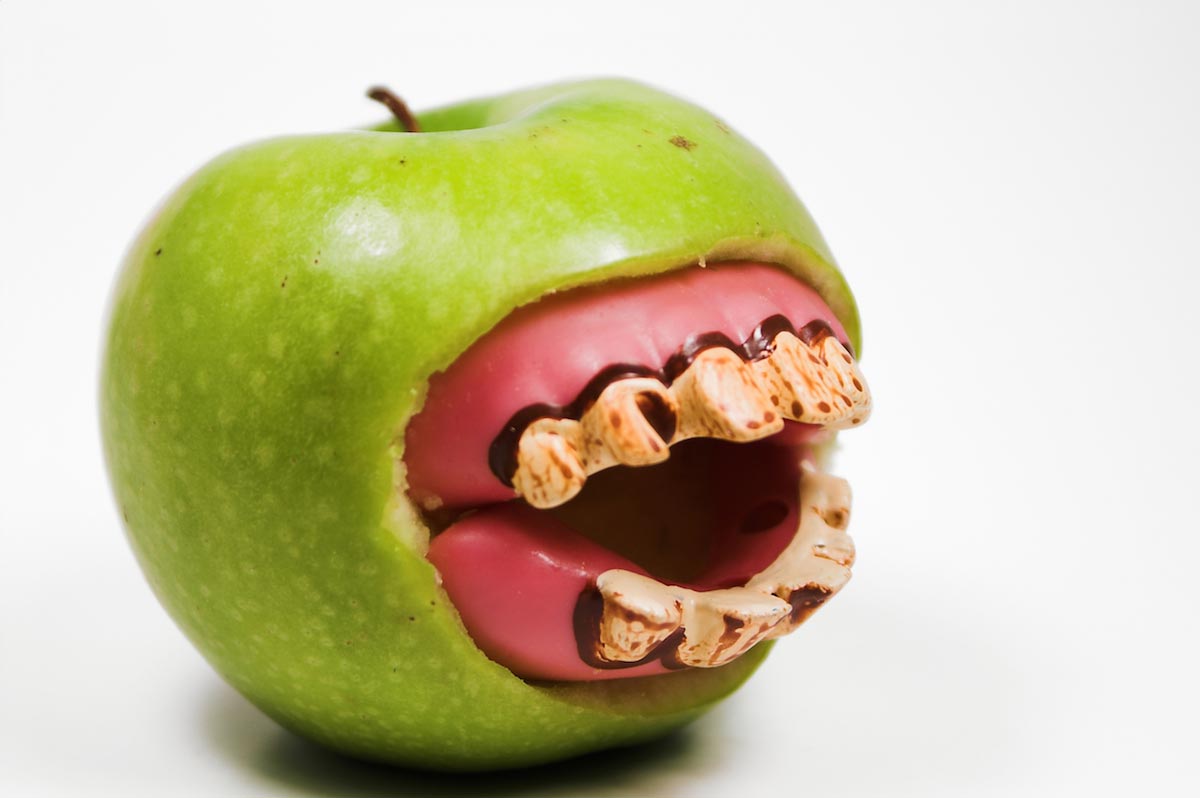
New research has found that bees are not the only bugs that can be harmed by pesticide use. The beneficial bacteria that inhabit the human mouth are also subject to the harms of pesticide exposure. It may seem trivial, but these bacteria make up what is known as the "oral microbiome," and it is every bit as important as the microbiome of the intestines.
There are hundreds of bacterial populations that can inhabit the mouth, with a delicate balance being struck between friendly and potentially pathogenic species.
Research shows pesticides decimate oral microbiome
The study, which was published in the journal Applied and Environmental Microbiology, found that there was a link between pesticide exposure and the ruination of a healthy oral microbiome. Many pesticides are thought to be harmful in some way, shape or form, but this study has put a spotlight on the oral microbiome, which is thought to play a valuable role in human health.
Researchers from Washington University led the study, which focused on examining the "oral buccal microbiota" – or the bacterial populations found on the inner cheeks – of 65 farm workers and 52 non-farm worker participants. The team wanted to see if pesticide exposure had any influence on their oral microbiota.
Blood and cheek samples were collected from the participants during the spring and summer of 2005, as well as the winter of 2006.
Two discoveries were made: Not only did the farmers have higher amounts of pesticides circulating in their bloodstreams, but they also exhibited greater changes to their oral bacteria populations. The researchers noted, "We found a seasonally persistent association between the detected blood concentration of the insecticide Azinphos-methyl and the taxonomic composition of the buccal swab oral microbiome." This essentially means that the researchers found an association between the amount of pesticides in the blood and the composition of the oral microbiome, and this association persisted even into winter -- which suggests a fairly long-term effect.
The research team wrote, "In this study we show in human subjects that organophosphate pesticide exposure is associated with large-scale significant alterations of the oral buccal microbiota composition with extinctions of whole genera suggested in some individuals. "
While this study did not investigate the health effects of these changes in microbial composition, past research has indicated that changes in oral bacterial populations can be a precursor to oral health issues.
The importance of a healthy oral microbiome
While the scientists from Washington University may not have looked into what harmful effects the changes to the oral bacteria may have elicited, other research has shown that maintaining healthy, balanced flora is important for your mouth, and your health.
A paper published in 2016 by the British Dental Journal describes the importance of a healthy oral microbiome in depth, and notes that these bacteria do not just keep the mouth healthy, but also seem to promote overall well-being, much like our intestinal microbiome. The researchers also note that the loss of a healthy oral microbiome can be devastating to the health of an individual.
The study authors explain: "It is now an accepted concept that the bacteria historically considered as oral 'pathogens' can be found in low numbers at healthy sites, and oral disease occurs as a consequence of a deleterious change to the natural balance of the microbiota rather than as a result of exogenous 'infection.'"
This dysbiosis -- or disruption of healthy, normal bacterial populations -- is thought to cause a number of ailments. Dental cavities and periodontitis are both thought to be related to dysbiosis, for example.
Populations of beneficial bacteria exist across the body, and they have co-evolved along with the human species to create a dynamic and symbiotic relationship between the body and bacteria. Many aspects of our modern lives may impact this relationship or have deleterious effects on the bacteria -- which can in turn yield a negative effect on human health.
Sources include:
Please contact us for more information.






















